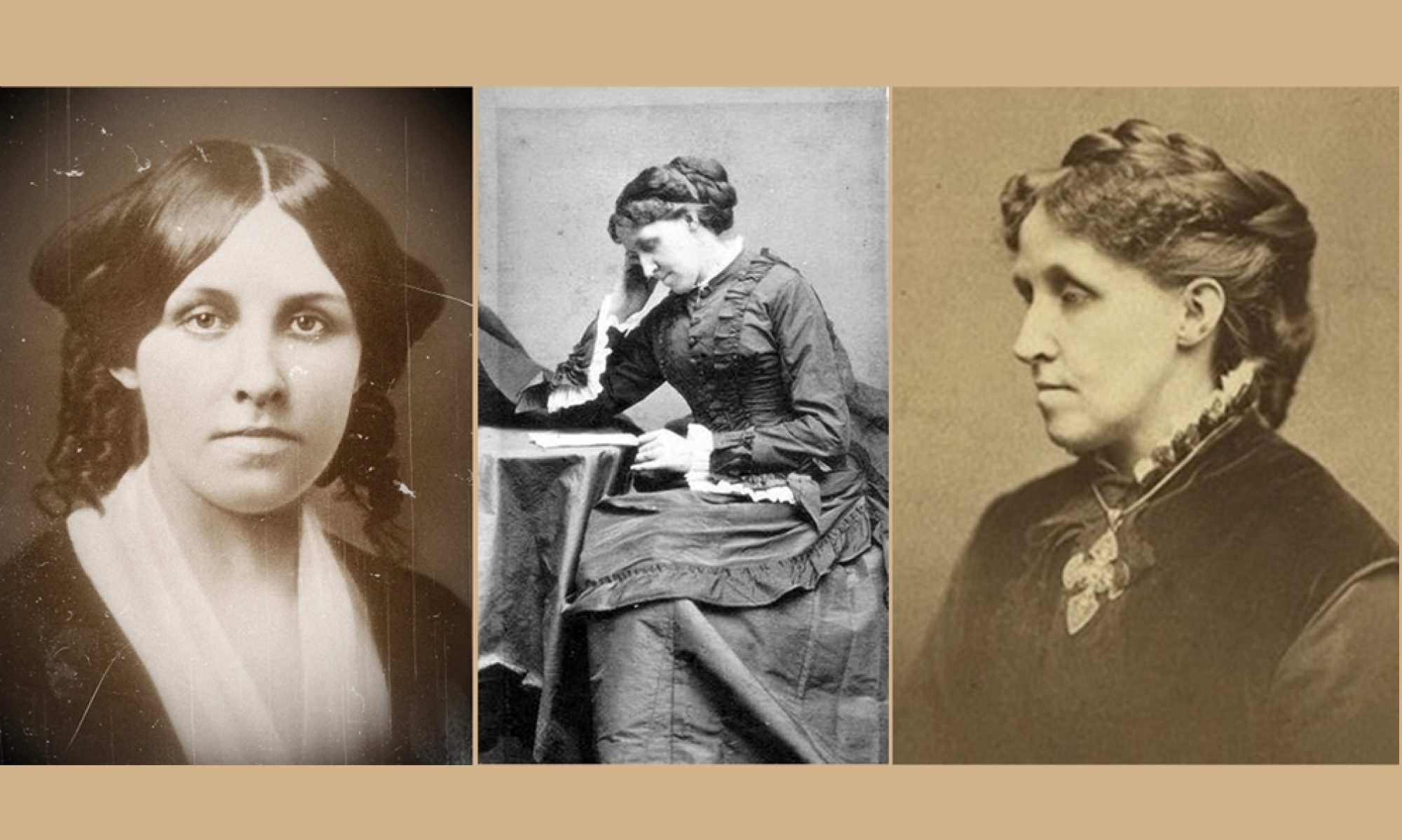In the last post, I shared Geraldine Brooks’ imagined back story on Marmee’s temper and how her husband helped her to control it.
Now from March I’d like to share Brooks’ version of how the March family lost their fortune. She creates a very plausible scenario with an historical figure, one that captivated much of Concord (the Alcotts among them) with his zeal for abolishing slavery.
His name? John Brown.
 John Brown
John Brown
John Brown is infamous for the 1859 raid on Harper’s Ferry where he sought to ignite an armed revolt by the slaves by seizing a United States Arsenal (from Wikipedia). He had no qualms about the use of violence to bring about his means, even if it meant the sacrifice of his sons.
Attraction
March appreciated Brown’s commitment but was put off by his violent methods. However, Marmee was very taken with him. March noted the animated way Marmee conversed with Brown, observing that “I could see that Brown ignited the very part of my wife’s spirit I wished to quench: the lawless, gypsy elements of her nature.”
Winning his wife’s esteem
Marmee admired Brown as an heroic figure and March felt a stab of jealousy: “I want her to see me that way.” It was then that March decided to, in a sense, buy his wife’s esteem by funding Brown.
Questionable judgment
Brown had a sordid past financially, dogged by debt and law suits. Yet while he was fiery and off-putting in his public zeal, in private he was a very different man: humble and diffident. He won over March in private just as he had won over Marmee in public.
 Foolishness leads to disaster
Foolishness leads to disaster
March is astonishingly naive, never realizing he should have been more careful. Determining that his past investments had supported the institution of slavery, he gives Brown whatever he asks for.
In the end, using up all the family money, March inadvertently supports the raid on Harper’s Ferry (along with Quaker donors who also vigorously opposed violence). Quite a price to pay for the purchase of his wife’s approval.
Regret
March must confront Marmee and share with her their now desperate plight. Always pragmatic, Marmee questions her husband’s judgment: “But must it have been our entire capital?” March’s answer is that he had to commit all since Brown risked his very life for his beliefs.
 Marmee was not the only one who had been seduced by John Brown.
Marmee was not the only one who had been seduced by John Brown.
In the end Brown was tried for treason and hung.
Consequences
March did not seek to build a new fortune as he was not the peddlar of his youth. He determined that his wealth had been obtained through less than high-minded means and he would not make that mistake again.
No help was to come from Aunt March who had inherited a great fortune from her husband. She added insult to injury by offering to “adopt” Meg. This truly set off Marmee’s temper which March sought to control. She rails at him:
“You stifle me! You crush me! You preach emancipation, and yet you enslave me, in the most fundamental way. Am I not to have the freedom to express myself, in my own home? In the face of such insult? You call our girls your ‘little women’; well, I am your belittled woman, and I am tired of it. Tired of suppressing my true feelings, tired of schooling my heart to order, as if I were some errant pupil and you the schoolmaster. I will not be degraded in this way.”
“It is you,” I said, trying to keep my voice even, though my pulse beat in my head. “It is you who degrade yourself, when you forgo self-mastery.”
Even the enlightened March must lord over his wife. Never mind that he, like Bronson, failed to provide for her.
What do you think of Geraldine Brooks’ scenario for the loss of the March family fortune?

![]() Are you passionate about Louisa May Alcott too?
Are you passionate about Louisa May Alcott too?
Send an email to louisamayalcottismypassion@gmail.com
to subscribe, and never miss a post!
Facebook Louisa May Alcott is My Passion
More About Louisa on Twitter

Huh.